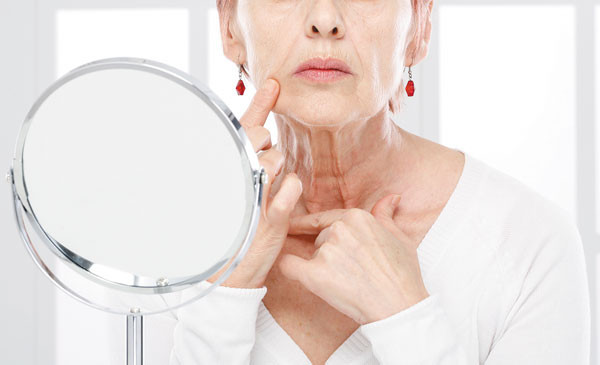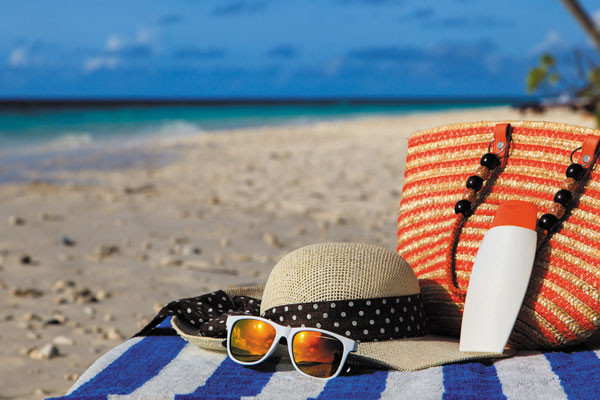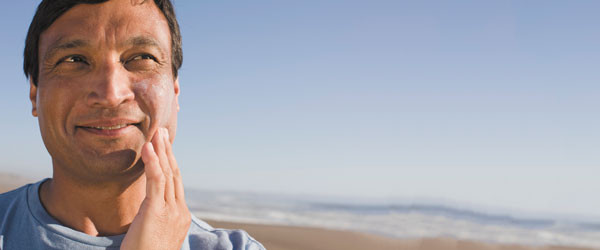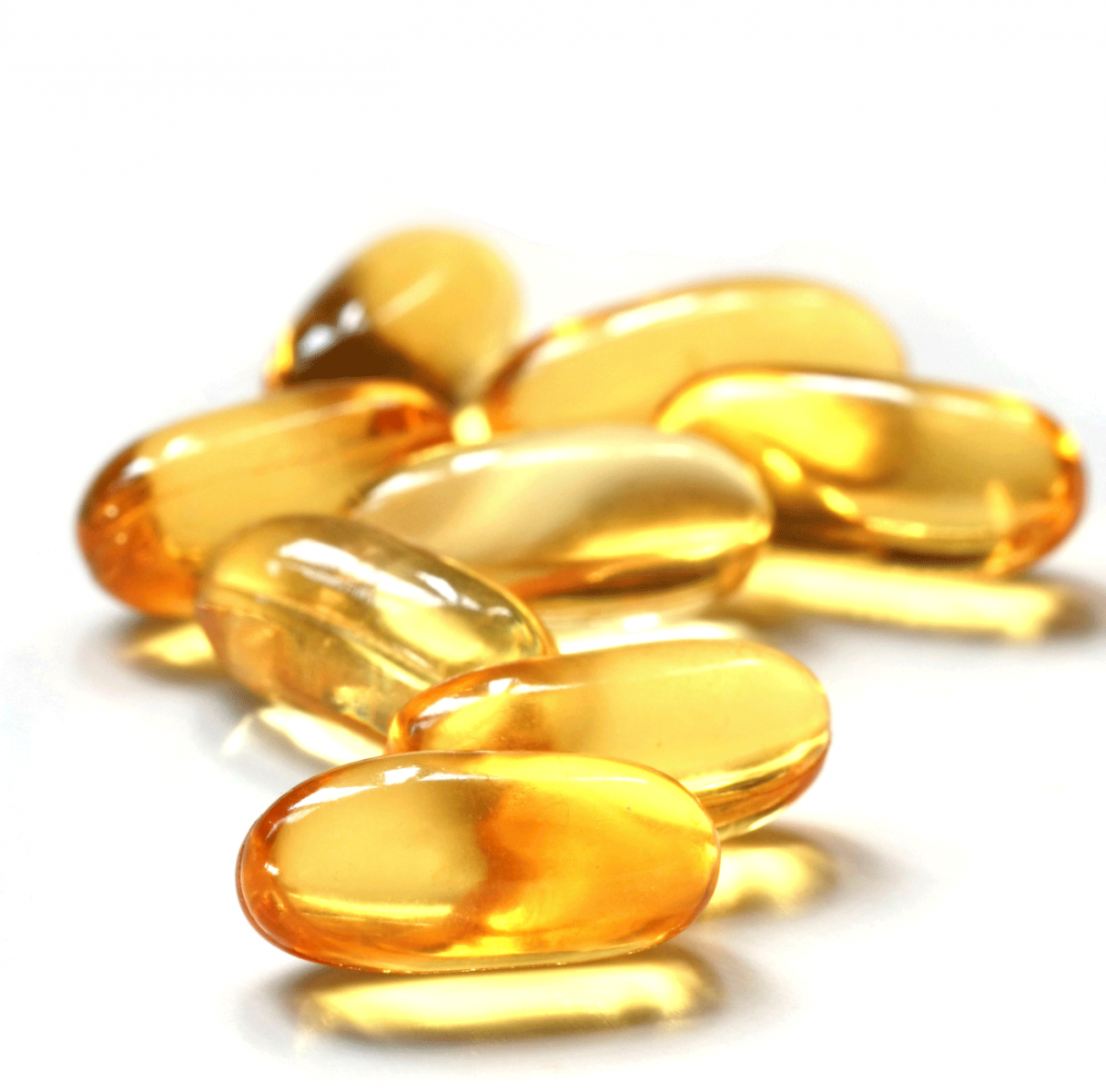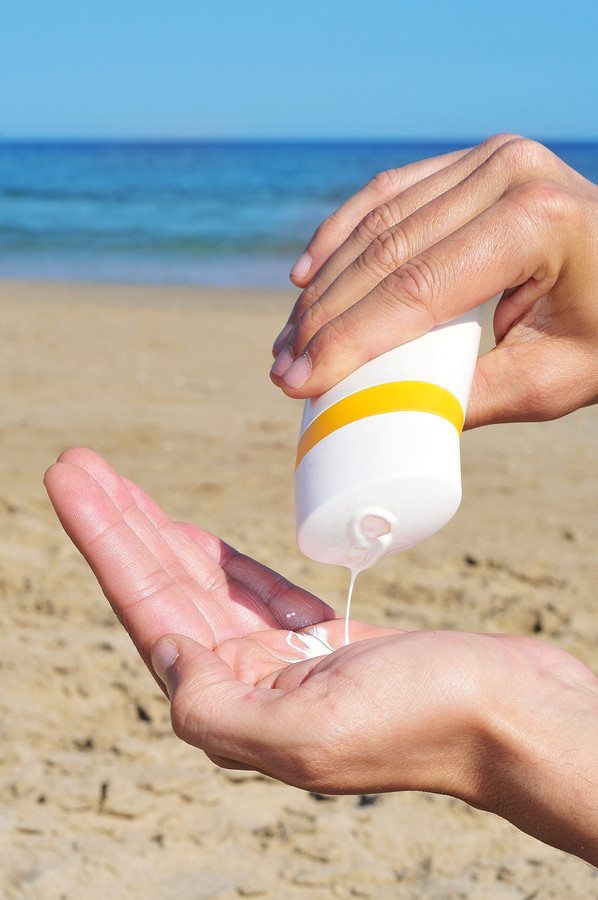
What can magnesium do for you and how much do you need?

Dry socket: Preventing and treating a painful condition that can occur after tooth extraction

What happens during sleep �� and how to improve it

How is metastatic prostate cancer detected and treated in men over 70?

Could biofeedback help your migraines?

Plantar warts: Options for treating this common foot condition

Cancer survivorship: What comes next after treatment

Nutritional yeast: Does this savory, vegan seasoning pack a nutritional punch?

Salmonella is sneaky: Watch out

Two jobs may lower the odds of dying from Alzheimer's disease �� but why?
Skin and Hair Archive
Articles
Want to take years off your face? These treatments can rejuvenate your skin
An increasing array of nonsurgical products and procedures aim to reduce the effects of time and sun exposure.
��Image: studiokovac/Thinkstock
It's often said that our lives are written on our faces. But if you feel like doing a little editing—erasing a few fine lines, softening a deep furrow, or evening out some patchy spots—there's an increasing array of products and procedures to help rejuvenate skin worn by time and sun exposure. "When it comes to skin treatments, there's lots of good news in therapies for medical conditions as well as cosmetic concerns," says Dr. Kenneth Arndt, adjunct professor of dermatology at Harvard Medical School and medical editor of the Harvard Special Health Report .
A growing population of healthy, active older women who want to look as young as they feel has spurred the development of skin rejuvenation techniques that are more subtle and have much shorter recovery times than facelifts. "It's important to choose your treatments with care and to check and double-check the reputation and accreditation of clinicians performing invasive skin procedures," Dr. Arndt says. You may want to consult a dermatologist to weigh the possible risks and likely benefits of various treatments. Cosmetic procedures aren't covered by insurance, so cost might also be an important factor in choosing a skin rejuvenation procedure.
Dry skin? Moisturizers can help
Many products are designed to absorb water into the skin, keep it from evaporating, or both.
Image: Bigstock
If you grew up watching Doris Day movies, you may have assumed she was privy to skin treatments that weren't available to the general public. However, as she revealed in her autobiography, Vaseline (petrolatum) was the key to keeping her skin soft and smooth.
Things have changed quite a bit in the last 50 years. Petrolatum is still a popular staple, but there is now a dizzying array of newer moisturizers, many with a baffling list of ingredients on their labels. However, they all are designed to either add moisture to the skin or keep it there. Many do both. "Think of moisturizers as putting a barrier between your skin and the cold, dry air," says Dr. Kenneth Arndt, professor of dermatology at Harvard Medical School and faculty editor for the �첩���� Publications Special Health Report Skin Care and Repair (.)
What is venous insufficiency?
Venous insufficiency, which happens when veins don’t work properly, can cause swelling, pain, and a sense of heaviness in the legs. Elevating the legs when sitting or lying down can help; so can support stockings.
What can be done about droopy eyelids?
Droopy eyelids, known as ptosis, are often a normal occurrence of aging although some neurologic conditions also can cause the condition. Ptosis is not a serious problem unless it interferes with your vision. If this happens, or if your droopy eyelids are bothersome, you can opt for cosmetic surgery to repair your eyelids.
“Second skin�� reduces eye bags
A silicone-based product applied under the eyes can reduce the appearance of bags.
Why suntanning is still a bad idea
Sun protection is essential whenever you are outdoors. Self-tanning products offer a safe alternative for attaining that sun-kissed look.
Image: Nadezhda1906/Thinkstock
Gone are the days when we were urged to soak up the rays to get a healthy glow and absorb the "sunshine vitamin." Decades of medical research have determined that sun exposure causes skin cancer and that a nutritious diet and supplementation are reliable ways to obtain the vitamin D essential for good health. In other words, there is no good reason to expose your skin to the sun's ultraviolet (UV) radiation.
There is no such thing as a healthy suntan. "A tan is a response to DNA damage," says Dr. Barbara Gilchrest, a dermatologist at Harvard-affiliated Massachusetts General Hospital. Such damage is instrumental in the development of skin cancer, and it also accelerates skin aging. "Some women may tan well for many years, but eventually the skin quality will change, become leathery, develop lentigenes ["age spots"], and then coarse wrinkling," Dr. Gilchrest says. If you're a lifelong tanner, compare the skin on the underside of your upper arm or buttocks to a tanned area, and you'll see evidence of the changes wrought by UV radiation.
Sunscreen confusion
Men may not be doing all they need to protect themselves from sun damage and skin cancer.
��Image: JupiterImages/Thinkstock
Proper protection against skin cancer continues to be relevant once a man hits age 65. "Unfortunately, ultraviolet [UV] exposure and damage is cumulative over our lifetimes," says Dr. Joseph Merola, a dermatologist with Harvard-affiliated Brigham and Women's Hospital. "There is no safe age at which we can put down the sunscreen or stop thinking about sun protection."
Even if men are aware of the dangers of sun exposure, new research shows most do not follow basic guidelines. A study published June 17, 2015, in JAMA Dermatology found that only 14.3% of men surveyed reported they regularly use sunscreen. The study also found that men were more likely than women to never use sunscreen��43.8% of men compared with 27% of women—and perhaps most telling, only 7% knew what to look for on a sunscreen label.
The best ways to treat spider veins
Ask the doctor
Q: I have developed numerous small, thin veins over my legs. I would like to get rid of them. What is the most effective treatment?
A: Dilated superficial veins, known as reticular or "spider" veins, are a common problem as men get older. The preferred treatment is sclerotherapy, but laser therapy is gaining popularity. Sclerotherapy involves injecting fluid into the veins with a small needle. This liquid causes irritation and inflammation of the vein, leading to its collapse. Laser therapy uses intense pulsed light to cause heat-related damage to the veins. Both treatments involve some discomfort. Wearing compression stockings afterwards appears to help improve outcome.
Should I take vitamin D?
Ask the doctor
Q . I am 68 and in excellent health. I eat a healthy diet, exercise every day, and do not drink or smoke. I'm on no medicines. The only pill I take is vitamin D. But I'm wondering: is there any benefit in that?
A. In a nutshell, here's what we know. Our skin makes most of the vitamin D in our bodies after exposure to sunlight. Because most of us are indoors most of the 24 hour day, many of us have relatively low blood levels of vitamin D.
Survey finds men don't use enough sunscreen
The best way to prevent skin cancer is to use sunscreen to reduce lifetime exposure to the sun's damaging rays. But some men may not be heeding the gospel of sun protection, according to a report in the Journal of the American Academy of Dermatology.
Analysis of data from a 2013 national survey showed that less than 15% of men, compared with 30% of women, said they regularly used sunscreen on both the face and other exposed areas, such as the back, arms, and legs.

What can magnesium do for you and how much do you need?

Dry socket: Preventing and treating a painful condition that can occur after tooth extraction

What happens during sleep �� and how to improve it

How is metastatic prostate cancer detected and treated in men over 70?

Could biofeedback help your migraines?

Plantar warts: Options for treating this common foot condition

Cancer survivorship: What comes next after treatment

Nutritional yeast: Does this savory, vegan seasoning pack a nutritional punch?

Salmonella is sneaky: Watch out

Two jobs may lower the odds of dying from Alzheimer's disease �� but why?
Free Healthbeat Signup
Get the latest in health news delivered to your inbox!
Sign Up
